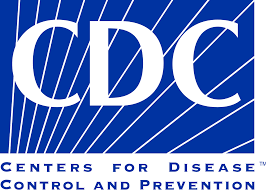Article
COVID-19 Pandemic Causing Mental Health Problems for Public Health Workers
Author(s):
Younger age and individuals who work more than 41 hours per week were associated with more prevalent mental health symptoms.

Throughout the entirety of the COVID-19 pandemic there has been concerns over the impact on the collective mental health of the population, particularly for public health workers.
In a new survey of 26,174 state, tribal, local, and territorial public health workers, 53.0% reported symptoms of at least 1 mental health condition in the past 2 weeks, but symptoms were more prevalent among those who were unable to take time off or worked at least 41 hours per week.
The Survey
The survey was administered and analyzed by a team, led by Jonathan Bryant-Genevier, PhD, Epidemic Intelligence Service, CDC and the CDC COVID-19 Response Team, in an effort to drive future decisions and reduce the mental health impact of crisis. The nonprobability-based online survey was conducted between March 29, 2021 and April 16, 2021.
The researchers assessed symptoms of depression, anxiety, post-traumatic stress disorder (PTSD), and suicidal ideation among public health workers in state, tribal, local, and territorial public health departments.
The survey was self-administered, online, and anonymous involving public health workers who worked for any length of time in 2020. The questions were on traumatic events or stressors experienced since March 2020, as well as on demographics, workplace factors, and self-reported mental health symptoms, including depression, anxiety, PTSD, or suicidal ideation in the previous 2 weeks.
The majority of respondents—92.6%—reported working directly on COVID-19 response activities, 59.2% of which worked at least 41 hours a week since the beginning of the pandemic.
Subgroup Analysis
Other subgroups with high rates of mental health related symptoms including individuals younger than 29 (13.6-47.4%) and transgender or nonbinary individuals (30.4-65.5%).
The most prevalent mental health symptoms were depression (32%), anxiety (30.3%, PTSD (36.8%), and suicidal ideation (8.4%).
But the most important factor may have been time spent at work.
“Public health workers who reported being unable to take time off from work were more likely to report adverse mental health symptoms,” the authors wrote. “Severity of symptoms increased with increasing weekly work hours and percentage of work time dedicated to COVID-19 response activities.”
Potential Solutions
One potential way to avoid some of these increases in mental health problems include implementing prevention and control practices to eliminate, reduce and manage the factors that cause or contribute to poor mental health.
“Implementing prevention and control practices that eliminate, reduce, and manage factors that cause or contribute to public health workers’ poor mental health might improve mental health outcomes during emergencies,” the authors wrote.
In 2014, a survey of health care workers showed there were nearly 250,000 state and local public health workers in the US.
The report, “Symptoms of Depression, Anxiety, Post-Traumatic Stress Disorder, and Suicidal Ideation Among State, Tribal, Local, and Territorial Public Health Workers During the COVID-19 Pandemic — United States, March–April 2021,” was published online by the CDC.





